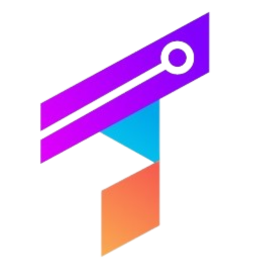

Mobile apps are essential for businesses in the digital age, offering a convenient way to connect with customers, increase brand visibility, and boost sales. They enhance customer engagement by providing personalized and efficient experiences, contributing to business growth.
In today's digital age, mobile apps have become an indispensable tool for businesses of all sizes. They offer a convenient and efficient way to connect with customers, enhance brand visibility, and drive sales. Here are some of the key benefits of having a mobile app for your business:
Key Benefits of Mobile Apps for Customer Engagement:
1. Personalized Experiences:
Tailored Content: Mobile apps can deliver personalized content, such as product recommendations, news articles, and blog posts, based on a user's preferences and behavior.
Targeted Notifications: Push notifications can be used to send targeted messages, promotions, and alerts to keep users engaged.
Interactive Features: Features like quizzes, polls, and surveys can encourage user interaction and gather valuable feedback.
2. Real-Time Communication:
Live Chat Support: Mobile apps can incorporate live chat features, allowing customers to connect with support agents in real-time.
Social Media Integration: Integrating social media platforms into your app can foster community building and encourage user-generated content.
3. Loyalty Programs and Rewards:
Gamification: Gamify the user experience with rewards, badges, and levels to motivate user engagement.
Exclusive Offers: Provide exclusive discounts, promotions, and early access to new products or services.
Personalized Rewards: Tailor rewards to individual customer preferences and behavior.
4. Seamless User Experience:
Intuitive Design: Create a user-friendly interface that is easy to navigate.
Fast Performance: Optimize your app for speed and responsiveness.
Offline Functionality: Provide essential features that can be accessed offline.
5. Data-Driven Insights:
Analytics and Tracking: Use analytics tools to track user behavior and identify trends.
A/B Testing: Test different app features and designs to optimize user experience.
Customer Feedback: Gather feedback through surveys and reviews to improve your app.
Strategies for Enhancing Customer Engagement:
Push Notifications: Deliver timely and relevant notifications to keep users engaged.In today's digital age, mobile apps have become a powerful tool for businesses to enhance their brand visibility and reach a wider audience. By leveraging the power of mobile technology, businesses can effectively connect with their target market, build brand awareness, and drive customer engagement.
Here's how mobile apps can significantly increase brand visibility:
1. Expanded Reach
Global Audience: Mobile apps allow businesses to reach a global audience, transcending geographical boundaries.
24/7 Accessibility: Users can access your brand and services anytime, anywhere, through their mobile devices.
Increased Visibility: App stores and mobile search engines provide additional opportunities for your brand to be discovered.
2. Enhanced Brand Awareness
Visual Branding: Mobile apps offer a unique platform to showcase your brand's visual identity, including logos, color schemes, and typography.
Consistent Branding: Ensure consistent branding across all touchpoints, from the app's interface to marketing materials.
Emotional Connection: Create a strong emotional connection with your users through engaging app experiences.
3. Improved Brand Reputation
Positive User Experience: A well-designed and user-friendly app can enhance your brand's reputation.
Prompt Customer Support: Offer timely and effective customer support through in-app messaging or live chat.
Positive Reviews and Ratings: Encourage users to leave positive reviews and ratings on app stores.
Shareable Content: Incorporate social media sharing features to encourage users to share your app and its content.
User-Generated Content: Encourage users to create and share content related to your brand.
Social Media Campaigns: Run targeted social media campaigns to promote your app and drive downloads.
5. Targeted Marketing
Push Notifications: Send personalized push notifications to keep users engaged and informed.
In-App Messaging: Use in-app messaging to deliver targeted promotions and offers.
Data-Driven Marketing: Utilize data analytics to identify user segments and tailor marketing campaigns accordingly.
6. Offline Engagement
Loyalty Programs: Implement loyalty programs to reward customers and encourage repeat business.
Offline Features: Offer offline features like offline access to content or offline ordering to enhance user experience.
7. Competitive Advantage
Differentiate Your Brand: Offer unique features and functionalities that set your app apart from competitors.
Stay Ahead of the Curve: Continuously update your app with the latest features and technologies.
Adapt to Changing Trends: Stay informed about emerging trends in mobile app development and adapt your strategy accordingly.
By leveraging the power of mobile apps, businesses can significantly increase their brand visibility, attract new customers, and build stronger relationships with existing ones. A well-designed and well-executed mobile app strategy can be a game-changer for any business.
Personalized Experiences
Tailored Content:
Mobile apps can deliver personalized content, such as product recommendations, news articles, and blog posts, based on a user's preferences and behavior.
Custom Notifications:
Push notifications can be used to send targeted messages, promotions, and alerts, keeping users engaged and informed.
Interactive Features:
Features like quizzes, polls, and surveys can encourage user interaction and gather valuable feedback.
Seamless User Experience
Intuitive Design:
A well-designed app interface is easy to navigate and use.
Fast Performance:
Optimize your app for speed and responsiveness to avoid frustrating users.
Offline Functionality:
Provide essential features that can be accessed even without an internet connection.
Easy Access to Information
Product Information:
Provide detailed product information, including specifications, reviews, and pricing.
Customer Support:
Offer 24/7 customer support through in-app chat or email.
Account Management:
Allow users to manage their accounts, track orders, and view purchase history.
Enhanced Customer Service
Live Chat Support:
Provide real-time customer support through live chat features.
Self-Service Options:
Offer self-service options like FAQs and troubleshooting guides.
Efficient Issue Resolution:
Quickly resolve customer issues and complaints.
Loyalty Programs and Rewards
Gamification:
Use gamification elements like points, badges, and levels to motivate user engagement.
Exclusive Offers:
Provide exclusive discounts, promotions, and early access to new products or services.
Personalized Rewards:
Tailor rewards to individual customer preferences and behavior.
Mobile apps have revolutionized the way businesses collect and analyze data. By tracking user behavior and preferences, businesses can gain valuable insights that can be used to make data-driven decisions.
Here's how mobile apps can provide data-driven insights:
User Analytics
Track User Behavior:
Use gamification elements like points, badges, and levels to motivate user engagement.
Identify User Preferences:
Analyze user preferences to tailor content and recommendations.
Measure User Engagement:
Track key metrics like app open rates, session duration, and conversion rates.
A/B Testing
Experiment with Different Features:
Test different versions of features or designs to determine the most effective approach.
Optimize User Experience:
Use A/B testing to improve user experience and increase conversions.
Personalized Marketing
Targeted Campaigns:
Deliver targeted marketing campaigns based on user demographics, interests, and purchase history.
Personalized Recommendations:
Offer personalized product recommendations and suggestions.
Dynamic Pricing:
Adjust pricing strategies based on real-time data and user behavior.
Customer Feedback
In-App Surveys:
Gather feedback from users through in-app surveys and polls.
Review Analysis:
Monitor app store reviews to identify areas for improvement.
Social Media Listening:
Track social media conversations to understand customer sentiment.
Predictive Analytics
Forecast Future Trends:
Use historical data to predict future trends and customer behavior.
Identify Potential Issues:
Detect potential problems before they arise.
Optimize Business Operations:
Make data-driven decisions to improve efficiency and profitability.
Mobile apps can provide a significant competitive advantage for businesses. Here are some ways how:
Enhanced Brand Visibility:
A well-designed and well-marketed mobile app can increase brand visibility and reach a wider audience.
Differentiation:
Offer unique features and functionalities that set your app apart from competitors.
Improved Customer Experience:
Provide a seamless and personalized user experience that exceeds customer expectations.
Increased Customer Loyalty:
Reward loyal customers with exclusive offers, loyalty programs, and personalized experiences.
Enhanced Brand Visibility:
A well-designed and well-marketed mobile app can increase brand visibility and reach a wider audience.
Faster Time to Market:
Launch new products and services quickly and efficiently through mobile apps.
Data-Driven Decision Making:
Leverage data analytics to gain valuable insights into customer behavior and preferences.
Cost-Effective Marketing:
Mobile apps can be a cost-effective way to reach your target audience.
Stronger Brand Reputation:
Positive user experiences can lead to positive word-of-mouth and increased brand reputation.
To develop a successful mobile app, consider the following tips:
Developing a successful mobile app requires a combination of technical expertise, strategic planning, and a deep understanding of user needs. Here are some key steps to consider:
Define Your App's Purpose and Target Audience
Identify Your Niche:
Determine the specific problem your app will solve or the need it will fulfill.
Know Your Users:
Understand your target audience's demographics, interests, and behaviors.
Conduct Thorough Market Research
Analyze Competitors:
Study successful apps in your niche to identify their strengths and weaknesses.
Identify Market Gaps:
Look for opportunities to fill gaps in the market with your app.
Validate Your Idea:
Gather feedback from potential users to validate your app concept
Plan and Design
User Experience (UX) Design:
Study successful apps in your niche to identify their strengths and weaknesses.
User Interface (UI) Design:
Design a visually appealing and consistent user interface.
Wireframing and Prototyping:
Create wireframes and prototypes to visualize the app's structure and functionality.
Choose the Right Technology Stack
Platform Selection:
Decide whether to develop for iOS, Android, or both.
Development Tools and Frameworks:
Select the appropriate tools and frameworks to accelerate development.
Backend Infrastructure:
Choose a suitable backend infrastructure, such as cloud-based solutions or server-side scripting languages.
Develop and Test
Coding and Development:
Write clean, efficient code and follow best practices.
Testing:
Conduct thorough testing to identify and fix bugs and performance issues.
User Testing:
Gather feedback from real users to refine the app's functionality and usability.
Launch and Market
App Store Optimization (ASO):
Optimize your app's title, description, keywords, and visuals to improve visibility.
Social Media Marketing:
Promote your app on social media platforms.
Content Marketing:
Create blog posts, articles, and videos to generate interest in your app.
App Store Marketing:
Utilize app store advertising to reach a wider audience.
Post-Launch Support and Updates
Monitor App Performance:
Track key metrics like user engagement, retention, and crash rates.
Gather User Feedback:
Collect feedback through app store reviews and in-app surveys.
Continuous Improvement:
Regularly update your app with new features, bug fixes, and performance improvements.
By investing in a well-designed and well-marketed mobile app, your business can reap the benefits of increased customer engagement, brand visibility, and revenue.
To ensure the success of your mobile app project, partnering with a skilled and experienced software development company is crucial. A reliable partner can help you navigate the complexities of app development, from ideation to deployment.
Technokrate, a leading Software Development Company In Nagpur and a Top Software Development Company in India, offers comprehensive mobile app development services. Our team of experts can help you build high-quality, user-centric apps that drive business growth.
Contact us today to discuss your mobile app development needs.

In conclusion, mobile apps are transformative tools that drive business growth by enhancing customer engagement, increasing brand visibility, and improving customer experiences. Through personalized interactions, data-driven insights, and seamless user interfaces, businesses can build stronger connections with their customers and gain a competitive edge in the market. A well-executed mobile app strategy not only meets the evolving needs of users but also positions a brand for long-term success in the digital age. By partnering with a reliable app development company like Technokrate, businesses can ensure their mobile app delivers maximum value and achieves their goals effectively.
© Talentrise Technokrate Pvt Ltd. All Rights Reserved. Designed by Talentrise Technokrate Pvt Ltd